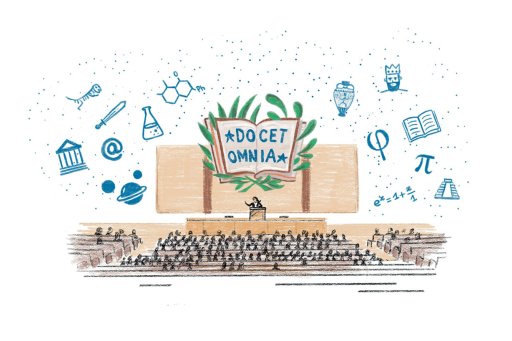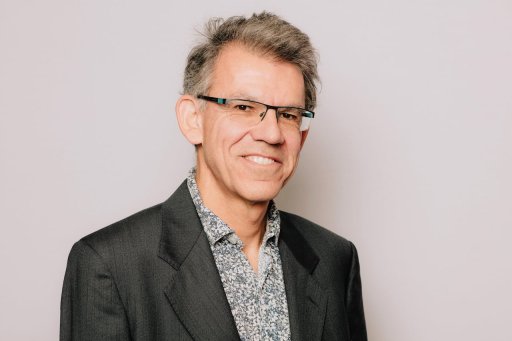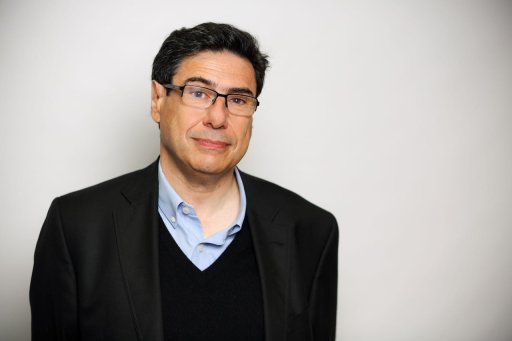A specialist in development economics and poverty, Esther Duflo wants to change the way poverty is perceived. With the Abdul-Latif-Jameel Laboratory (J-PAL), she conducts field research to test her ideas around the world. Nobel Prize in Economics 2019, she returns to the Collège de France. In 2008-2009, she was invited to hold the Knowledge against poverty chair. In 2022, Esther Duflo will hold the Poverty and Public Policies Chair.
You often compare your profession - economist - to that of a plumber. What do you have in common ?
Esther Duflo :Not all economists are plumbers !In fact, we don't all use the same methodology. Some economists behave more like mathematicians, others like physicists. But when you dabble in empirical economics as I do, you don't know exactly what to expect... Let's take a concrete example and admit that the question posed is: "Why do children have trouble learning at school?" You could approach it from a mathematician's point of view, looking at the concepts that shed light on the problem; you could also opt for a more physicist's angle, and try to draw on universal laws. We could take an engineering approach and try to find a solution, test it in the laboratory and then deploy it. Finally, there would be the plumber's methodology. Confronted with such a subject, this craftsman would say to himself: "I don't have the answer to the question. But, based on everything I've learned from other disciplines, I'm going to try something concrete, like, for example, offering more textbooks in schools." It's a bit like what a plumber does when he comes to your house to fix a leak. He has some basic knowledge, but his work is fraught with uncertainty; he opens walls in search of the leak, without knowing exactly what he's going to find. I proceed in much the same way: I go out into the field, trying to implement solutions to specific problems, but without knowing, a priori, whether it will work or not. Because I might have forgotten to anticipate this or that detail! In my work, the test phase is therefore indispensable. Like a plumber, I try to adopt an open attitude.
You specialize in poverty issues. What would be the right markers to define this notion?
Trying to find the right markers and the right ways of aggregating them to measure poverty seems complicated to me. Some components of poverty might be overlooked, because we wouldn't think of them intuitively. So it's best to keep a broad view of the definition of this notion. Nevertheless, we can say that any individual whose resources - either personal, or those available in society or the community - limit his or her opportunities to realize his or her potential or to lead the life he or she wants is poor. The concept of poverty evolves with society. According to the international community, poor households are those with less than 1.90 euros per person per day for basic consumption. However, in 2022, being poor doesn't just mean not having enough income, or not having enough money to finance comfortable consumption. It also means not having access to a good education and healthcare system. On these points, there's little disagreement. But poverty has other facets. In the case of women, for example, it means "not being able to realize one's ambitions". For many women in developing countries, it even means "not being able to work". There's also a more topical, striking issue in rich countries: access to energy has become difficult for many people there. In my opinion, not being able to keep warm enough, or having to make sacrifices to keep warm, is part of poverty.
Is poverty on the decline?
Until the Covid pandemic began in 2020, the quality of life of the very poor had improved significantly. In the last thirty years, extreme poverty has been roughly halved. Other aspects of poverty have also changed for the better. Infant mortality has been halved since 1990. The same applies to maternal mortality. Another positive point is that almost all the world's children are now in school - at least at primary level - with the major exception of the Sahel region. On the health front, it's worth noting that even the number of deaths linked to the AIDS epidemic has fallen dramatically since the 2000s. Of course, there is still much progress to be made on other fronts. For example, women's participation in the labor market has not really increased... But overall, the well-being of the poorest has improved enormously. This improvement is largely due to the rapid economic development of India and China, but not only. In Africa, incomes have not risen much, but indicators of well-being, especially those linked to health, have evolved positively.
Covid has put the brakes on this trend..
Poor countries were less affected by the disease itself, but they were, and still are, hard hit by the economic fallout of the crisis. Unlike rich countries, they were unable to finance "whatever it takes" schemes, i.e. to multiply aid. Rich countries spent an average of 25% of GDP on support measures. Poor countries spent 2% of their GDP, leaving their populations far less protected. Everything collapsed much more radically, both economies and social services. India, for example, lost 27% of its GDP. Added to this Covid crisis is the rise in food prices... 345 million people are food insecure today. They are also suffering from the rise in the dollar's lecture and supply problems linked to the war in Ukraine. In short, people have fallen, or fallen back, into poverty. We're far from back on an upward trend. And no one can say whether this is just a passing wave.
There are also the climatic risks that weigh on economic development..
The consequences will be disproportionate in poor countries. First and foremost, because of their geographical location. They lie between the equator and the tropics, where the climate is much warmer than in Western countries. What's more, these countries have few means of adapting to the consequences of climate change, since almost all emissions come from the rich countries. We face a terrible political problem with the victims of a global phenomenon, who can do nothing to prevent it.
What does plumber Duflo do on a daily basis, for example?
With my organization J-PAL, we completed a study that began in May-June2020 in India, in Tamil Nadu. The idea was to test two ways of breaking the isolation of elderly people in the field over a six-month period. Individuals in one of the two groups studied were given 1,000 rupees each, in addition to government aid already received. For members of the other group, we opted for psychological support therapy. We phoned them regularly. At the end of the experiment, we found that both interventions were effective. The therapy worked for as long as it was deployed, while the financial transfers were effective for a little longer. On the other hand, the effects had disappeared in both groups six months after the end of the experiments. We communicated the results to the government of Tamil Nadu and to the Health Department of this Indian state, which is currently developing a policy for the elderly. In our view, to reduce the isolation of the elderly, it would be necessary, on the one hand, to pay them a universal pension and, on the other, to train workers in the practice of "psychotherapy for non-psychotherapists".
Your work also involves convincing politicians to take up your research results..
This example of a universal pension scheme in Tamil Nadu best fits the idea of my work. I do research, and then I try to convince the government to make use of the results. I can't go to political leaders with "big hooves" and say "you've got to do this" without concrete evidence. In general, it takes a long time to build up a conviction and multiply exchanges, with civil servants or local representatives. There's a constant back-and-forth between research and economic policy work.
Will we ever get a global response to end poverty?
There will never be a global answer, because poverty is multidimensional and multifaceted. Moreover, for a very long time, the mistake was made of trying to find the solution to put an end to it. Since my first opening lecture at the Collège de France in 2008, attitudes to poverty have changed, both among academics and developing country governments. There is much more pragmatism and willingness to tackle concrete problems. This has led to progress.
What misconceptions about the poor need to be addressed?
There are both conscious and unconscious misconceptions. For example, some people still think that people are poor because they haven't worked hard enough, or even because they're a bit lazy. Of course, this idea may be floating around in the back of your mind, but once you stop to think about it for a while, your conviction becomes less strong. There are other clichés that are less harmless. I came across one of them when I was writing the children's books I've just published! These books are designed to explain to children what poverty is, and to help their parents put an end to certain preconceived ideas. My hero goes to school. Before publication, I had received the plates that illustrate and accompany his story. The school had been drawn far from the hero's home... And no! Contrary to what many people may think, in poor countries it's not always necessary to travel long distances to go to school! We all have preconceptions in Durkheim's sense. I must have them too. But my fieldwork has enabled me to eliminate some of them.
Interview by Beatrice Parrino, journalist.













